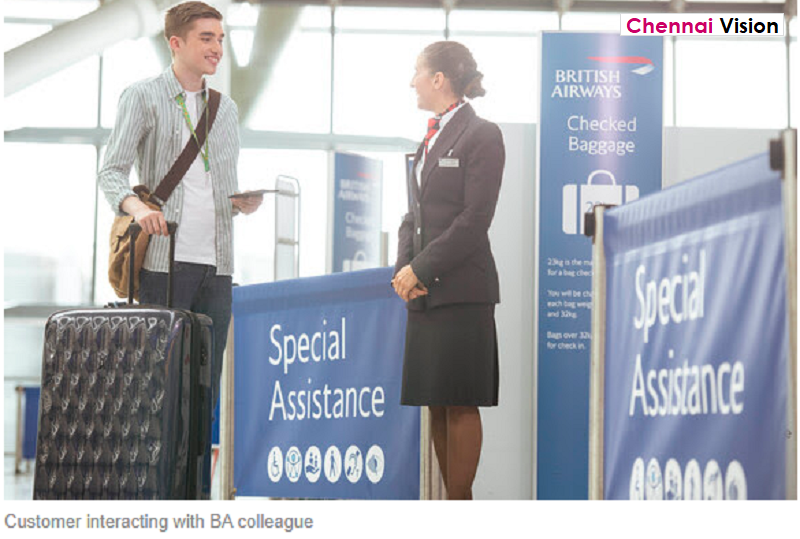British Airways Works With Queen Elizabeth’s Foundation For Disabled People To Enhance Accessibility Support For Customers
To mark International Day of Persons with Disabilities (3rd December 2022), British Airways has announced that it is working with Queen Elizabeth’s Foundation for Disabled People (QEF). By working with QEF, which supports children and adults with physical and learning disabilities or acquired brain injuries to increase their independence, the airline is showing its continued commitment to improve its customer experience for people with additional assistance requirements.
QEF offers a range of expert services, including supporting people to fly so that people with disabilities are more informed and confident about the choices available to them. The charity offers a two-stage Tryb4uFly consultation and assessment service, allowing apprehensive travellers the chance to try out real cabin seating donated by British Airways, or to try a virtual, immersive experience of what it’s like to travel from their home to their destination. The experience helps identify any equipment or additional assistance to make travel easier for customers with additional requirements.
British Airways has also been working with QEF to assess and pre-approve seat support devices recommended by the charity for use on BA flights, and this information can be found on the British Airways website or when customers get in touch with the airline’s dedicated accessibility team.
The airline’s colleagues are also supporting some of QEF’s training sessions for clinicians across the country, both at QEF’s centre in Carshalton, South London and at London Heathrow Airport. The sessions give medical professionals insight into the layout and functionality of British Airways’ aircraft cabins, as well as the customer journey through the airline’s main hub, Terminal 5 at Heathrow Airport, to ensure they have the best knowledge to prepare and support people with disabilities ahead of their journey.
Carrie Harris, Director of Sustainability at British Airways, said:
“Almost half a million customers who require additional assistance fly with British Airways each year. We’re committed to doing everything we can to support these customers as part of our BA Better World programme and by working with expert organisations like Queen Elizabeth’s Foundation for Disabled People, we’re taking another positive step to improve our service.”
Michelle Giles, QEF Mobility Services Manager said:
“QEF provides a range of expert services that support disabled people to be as independent as possible. Advance knowledge of equipment and support available at the airport and from airlines can make a journey much more comfortable.
“We’re grateful to British Airways for its support in improving our mock cabin with updated seating, so that everyone, no matter who they are flying with, can have a more realistic cabin experience before they commit to a flight. British Airways has also supported our professional training courses with valued insight and access to Heathrow Airport, which has been really beneficial for all involved. We’re looking forward to working closely with BA in the future to improve the experience of air travel for all disabled passengers.”
Aiming to become the airline of choice for customers with invisible and visible disabilities, British Airways is committed to ensuring a seamless travel experience and has introduced a number of initiatives as it builds towards this.
In a series of firsts, British Airways was the first UK airline to be awarded the renowned Autism Friendly Award by the National Autistic Society, the first to formally recognise the sunflower lanyard scheme (partnering with Hidden Disabilities Sunflower), the first to produce a Visual Guide to Flying to help customers prepare for their flight and the first UK carrier to embed British Sign Language (BSL) in its customer engagement centres by partnering with Sign Live. The airline has empowered all airport colleagues to help customers with additional accessibility requirements through its ‘Beyond Accessibility’ training programme and digital learning resources, providing information about invisible disabilities and practical advice on how to support customers at each stage of their journey*. It also provides a dedicated team of accessibility experts to assist with customer enquiries **.
More information on all of these initiatives can be found here
